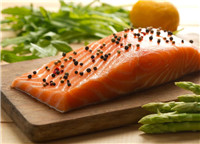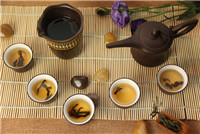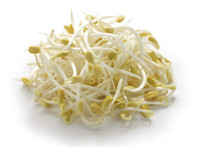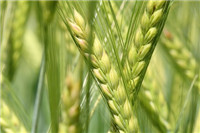Eczema is a skin condition characterized by red, swollen, itchy patches of skin. The most common type of eczema is atopic dermatitis, which can get worse by everyday things in your environment, such as pollen, cigarette smoke, and even your clothes. It is hard to live with eczema because the patient has to deal with scratching and itching all the time. Quite interestingly, some foods can trigger eczema, but some can help you find some relief. Here's more about what eczema diet can do and how you can plan a diet on your own.
Eczema Diet – Can It Really Help?
It is true that there are some foods that cause eczema,so you simply need to avoid them to see a change in your condition. At the same time, you can add some specific foods to put up a fight against this annoying skin condition. Although there's little evidence that diet can help in eczema, it's still worth trying. Many children have seen developing eczema mainly because they were allergic to certain foods. However, the researchers believe that eczema caused by foods is quite rare after age 3 or 4, and most children will only have to worry about hives and other skin reactions.
It is worth mentioning that some adults have reported that their eczema symptoms get worse after they eat certain foods. However, there is no scientific evidence to establish a relationship between foods and eczema flare-ups. It is more of an individual thing, but it is important to talk to your doctor before you eliminate a food or add something to your diet.
Eczema Diet – Foods that May Help
If you've been finding it difficult to deal with eczema, you may consider going on a diet that includes foods rich in quercetin, vitamin C, vitamin A, vitamin E, and omega-3 fatty acids. The foods with such nutrients promote healthy skin, which may help you find some relief from eczema symptoms. Here's what you may want to include in your eczema diet:
1. Salmon and Other Omega 3 Fatty Acids

You need to include food in your diet that’s rich in omega-3 fatty acids. Salmon is a great source of omega-3s. Eating salmon and other fish regularly will help your body to grow new skin, reduce inflammation, and prevent eczema.
2. Oolong Tea

Oolong is still a staple in Chinese pantries and produces a taste that's more like a cross between green tea and black tea. In research conducted in Japan, it was found that if eczema patients drink three cups of oolong tea for a week, they would find some relief from itching.
3. Yogurt with Live Cultures

Yogurt and other fermented foods such as kefir contain good bacteria that help strengthen your immune system. These bacteria, also known as probiotics, live in your gut and help reduce inflammation. These bacteria also stimulate your body to produce antibodies and white blood cells that stop your body from reacting to allergens. This in turn will also prevent eczema flare-ups.
4. Bean Sprouts

Adding more grains and seeds to your diet will definitely help you with eczema and improve your overall health by loading your body up with essential nutrients. You can even grow them in your kitchen and they will be ready in a few days. This will help provide your body with nutrients that prove beneficial to reduce inflammation and improve your immunity as well.
5. Aloe Vera

Adding Aloe Vera to your eczema diet is a great idea because of its healing properties. Aloe is basically a medicinal plant and looks quite like a cactus. It is still used in many parts of the world as a remedy to counteract symptoms of aging. It is also considered oestrogenic, which means it can vitalize your skin from the inside out. The presence of 18 amino acids and other minerals and vitamins makes it a great choice for people with eczema. Its anti-bacterial, anti-inflammatory, and immune stimulating properties make it quite useful for eczema around mouth.You can find it in health stores in the form of aloe juice or gel.
6. Green Grass Barley

Green grass barley is a great food that you can add to your diet and enjoy several health benefits, including healthy skin. It contains chlorophyll, which acts as a great wound healer and detoxifier. Quite interestingly, it can simulate hemoglobin in your blood.
7. Other Helpful Foods
You can always opt for some other helpful foods that will make your diet even more balanced and useful to fight off eczema.
- Banana: It helps because it contains histamine-lowering nutrients and is high in potassium, vitamin C, and magnesium.
- Chicken or beef: It works by providing your body with skin-repairing amino acid glycine.
- Potato: It helps by providing your body with vitamin C, potassium, and fiber – it's also alkalizing in nature.
- Green onions: It is useful because it has histamine-lowering quercetin, is anti-inflammatory, and is a rich source of vitamin K.
- Buckwheat: It contains quercetin that reduces histamine and is gluten-free as well.
- Rice milk: It is low in chemicals and sits quite well with patients of eczema.
Eczema Diet—Foods That May Make Matter Worse
Food allergens can sometimes be the reason behind atopic eczema, especially when your child is under one year of age. Some studies involving children and young people with eczema have confirmed that one-third to two-thirds of these patients also had a food allergy. Certain foods that may cause food allergies may also aggravate your eczema, and the list includes eggs, dairy products, soy products, nuts and seeds, and wheat.
The following link contains valuable information about making an eczema diet plan: http://myfoodmyhealth.com/meal-plans-diets/conditions/meal-planner-and-diet-for-eczema
